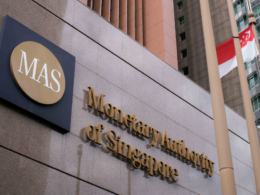A coalition of development banks has pledged to invest at least €3 billion (US$3.4 billion) by the end of the decade to combat marine plastic pollution, strengthening what is currently the largest international effort to tackle the escalating environmental crisis.
The announcement came as the second phase of the Clean Oceans Initiative (COI) was launched at a United Nations conference in Nice, France. The European Investment Bank (EIB), which is leading the project, said the total could increase further as additional partners join.
The renewed initiative builds on an earlier €4 billion commitment made by the EIB in collaboration with national development banks from France, Germany, Spain, and Italy, as well as the European Bank for Reconstruction and Development (EBRD). That initial funding was deployed between 2018 and May 2025—seven months ahead of schedule, according to EIB Vice President Ambroise Fayolle.
The first phase focused on improving waste and water management in developing countries, with projects ranging from wastewater treatment in Sri Lanka to flood protection in Benin and solid waste management in Togo.
The second phase will broaden its scope, not only continuing to support solid waste and stormwater management but also targeting upstream solutions to reduce plastic waste. These include financing new forms of sustainable packaging, promoting circular economy initiatives, and supporting the recycling sector.
“We see that there is a role for us to reduce the amount of virgin plastic that is needed—or, at least, kept in the system,” said Stefanie Lindenberg, the EIB’s project lead. She added that the bank would help de-risk innovation in this space, offering concessional finance, grants, or investments into third-party funds.
The initiative also aims to collaborate more closely with development banks in Asia and Latin America—two regions responsible for a significant share of ocean plastic waste. The Asian Development Bank has already joined the second phase and is expected to contribute regional expertise and networks. Talks are also underway with the World Bank and the Inter-American Development Bank.
The renewed commitment comes as the world faces mounting plastic pollution, particularly microplastics that have infiltrated marine ecosystems, soil, air, and even human bodies. The UN warns that without intervention, plastic waste entering oceans could triple by 2040 to as much as 37 million tonnes annually, up from 11 million tonnes in 2021.
Governments are scheduled to reconvene in August in an attempt to finalise a global agreement to curb plastic pollution, following a failed negotiation round in Busan, South Korea, last December.















